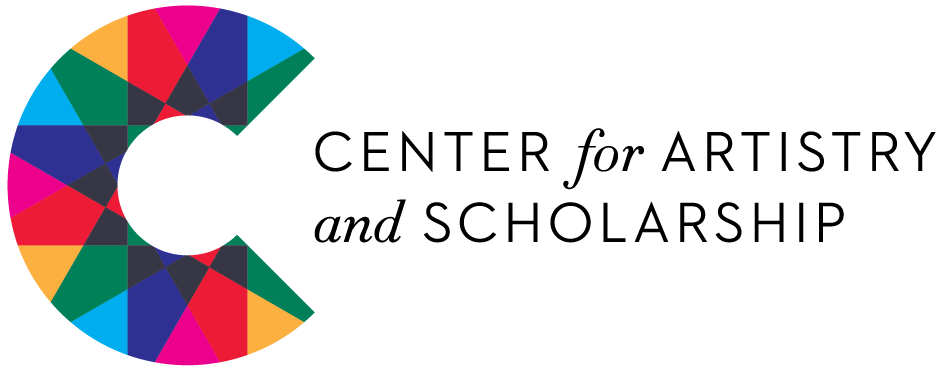"Race Doesn't Matter"
We are sharing reflections on and excerpts from Center for Artistry and Scholarship’s Executive Director Linda Nathan’s new book, When Grit Isn’t Enough, published October 2017 by Beacon Press. In the book, Linda investigates assumptions that inform our ideas about education today, revealing how these beliefs mask systemic inequity. Drawing from her experiences as the founding headmaster of Boston Arts Academy (BAA) and more than 80 interviews with alumni that she conducted after she stepped down, When Grit Isn't Enough argues that it's time for policy-makers and educators to face these uncomfortable issues. It also explores how we need room for creativity and student-centered teaching and learning to better serve all students, increase college retention rates, and develop alternatives to college that do not disadvantage students on the basis of race or income.
Chapter two of When Grit Isn’t Enough explores the difficult realization that race does matter when it comes to going to college. This chapter reinforced for me how important the arts are. The arts have the ability to dismantle our preconceived notions of others, and they serve as a public forum for discussing challenging topics. While I only speak about theatre in this blog post (as that is what I know best), my beliefs around the transformative power of theatre can translate to other art forms like music or dance. Linda writes in Chapter Two, “Race Doesn’t Matter,” quoting one of her previous students from BAA:
If we could really learn, in some kind of experiential way, what it’s like to come from another background or race or culture, we would be so much better equipped to live in this world. But none of that is valued in school. College is about how you do as an individual and how you do compared to others. But that won’t help make this a better world.
In her own words, Linda goes on to say:
Diversity and inclusion are crucial values for our society – especially give the ugly politics we are experiencing today. How diversity is included – how students feel they belong – is the simple key to success. Too many people in our country are growing up in complete racial and socio-economic isolation…Without opportunities to cross boundaries, we have little chance to know and understand people from different backgrounds. This is a danger to avoid in colleges, not one to mimic.
I am a trained theatre artist, and I have always felt that the theatre creates opportunities to “cross boundaries” as Linda references here. This works in several ways. First, theatre is a collaborative art form. Successfully producing a play is contingent upon a group of people working in sync with one another to accomplish a common goal. Artists must listen to one another, compromise, and set aside their personal agendas for the betterment of the team as a whole. If they do not, the play will fail. If we introduce young people to theatre early on in their lives, we are teaching them these kinds of social skills. By providing young people with opportunities to develop these strong qualities, we will slowly break down the societal barriers that have created so much isolation and anger in this country.
Theatre creates a window into others’ lives and experiences – both for audiences and for actors. The role of an actor is to portray a character that is different from oneself. With every role I was asked to play, I had to step outside of myself and learn about the perspective of someone else. Imagine if our young people were given the opportunity to experience what the world is like from a different perspective, from someone completely different than them. As Linda’s student says, “We would be so much better equipped to live in this world.” Theatre creates these opportunities.
Lastly, the theatre should be a place where societal norms are challenged and discussed. While theatre has always been a form of entertainment, it began as a way of learning about the lives and pasts of others. In Hamlet, the title character speaks to a group of actors:
Suit the action to the word, the word to the action, with this
special observance, that you o'erstep not the modesty of nature:
for any thing so o'erdone is from the purpose of playing, whose
end, both at the first and now, was and is, to hold as 'twere the
mirror up to nature…
Shakespeare is describing the very purpose of theatre – to hold “the mirror up to nature.” Theatre reflects the world that it inhabits, allowing us to experience the stories and perspectives of others. The best plays I have seen are the ones that make me question my own beliefs and challenge my thinking simply by telling a story that is different from my own experience. My hope is that by introducing students to theatre at a young age, we can cultivate a society in which theatre is more deeply valued. This will increase audiences, creating more opportunities for people to experience the lives of others. Perhaps I am idealistic, but I truly believe that through theatre we come to understand one another better, and that this makes a better world.
Rachel is the Community Liaison for the Conservatory Lab Charter School Foundation, and a theatre artist. In her role at the Foundation, she supports both the Conservatory Lab Charter School and the Center for Artistry and Scholarship.

